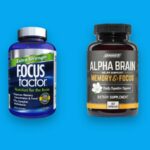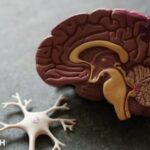
Table of Contents
Introduction
Adderall, a prescription medication frequently prescribed to address attention deficit hyperactivity disorder (ADHD) and narcolepsy, has also become a popular study and recreational drug due to its capacity to enhance alertness, concentration, and productivity.
Nonetheless, the widespread misuse of Adderall has raised concerns about its potential for addiction. This article delves into the issue of Adderall addiction, examining the causes, risk factors, and treatment options available to individuals grappling with addiction.
Understanding Adderall Addiction
Definition of addiction
Addiction is a chronic disease that affects the brain’s reward and motivation systems, resulting in compulsive drug-seeking behavior despite the negative consequences. It is characterized by physical and psychological dependence on a substance, which leads to withdrawal symptoms when the drug is stopped.
Mechanism of action of Adderall
Adderall, a combination of amphetamine and dextroamphetamine, is a stimulant drug that increases the levels of dopamine and norepinephrine in the brain. Dopamine is a neurotransmitter that plays a key role in the reward and motivation systems, while norepinephrine is involved in the body’s fight or flight response.
How Adderall works in the brain
Adderall works by boosting the release of dopamine and norepinephrine in the brain, leading to feelings of pleasure, euphoria, and increased energy. This mechanism of action is similar to other drugs of abuse, such as cocaine and methamphetamine.
Short-term effects of Adderall
In the short term, Adderall can improve focus, alertness, and productivity. It can also create a sense of euphoria, increased sociability, and decreased appetite.
Long-term effects of Adderall
However, long-term misuse of Adderall can have severe consequences, including addiction, cardiovascular problems, psychosis, and cognitive impairment.
Signs and symptoms of Adderall addiction
Signs and symptoms of Adderall addiction include increased tolerance to the drug, withdrawal symptoms when the drug is stopped, continued use despite negative consequences, and unsuccessful attempts to quit.
Causes of Adderall Addiction
Psychological factors
Individuals with underlying mental health conditions, such as depression and anxiety, may be more likely to develop an addiction to Adderall. They may use the drug as a coping mechanism for their symptoms, leading to the development of an addiction.
Social factors
Social factors, such as peer pressure and availability, can also contribute to the development of an addiction to Adderall. Individuals may feel pressured to use Adderall to improve their academic or professional performance or to fit in with their social group.
Biological factors
Genetics may also play a role in the development of an addiction to Adderall. Individuals with a family history of addiction may be more likely to develop an addiction themselves.
Risk Factors for Adderall Addiction
Age
Young adults and adolescents are more likely to misuse Adderall and develop an addiction.
Gender
Men are more likely to misuse Adderall than women, but women may be more vulnerable to developing an addiction.
Genetics
As mentioned, individuals with a family history of addiction are at a higher risk of developing an addiction to Adderall.
Pre-existing mental health conditions
Individuals with pre-existing mental health conditions, such as depression and anxiety, are at a higher risk of developing an addiction to Adderall.
Environmental factors
Environmental factors, such as a history of trauma or exposure to stress, can also contribute to the development of an addiction to Adderall.
Treatment for Adderall Addiction
Detoxification
The first step in treating an addiction to Adderall is detoxification, which involves safely withdrawing from the drug under medical supervision.
Behavioral therapies
Behavioral therapies, such as cognitive-behavioral therapy (CBT) and contingency management, are effective in treating Adderall addiction by addressing underlying psychological factors and teaching individuals coping skills to manage their cravings.
Medications
There are currently no medications approved specifically for the treatment of Adderall addiction, but medications such as antidepressants may be used to treat underlying mental health conditions that contribute to addiction.
Support groups
Support groups, such as 12-step programs like Narcotics Anonymous, can provide individuals with a sense of community and support in their recovery from Adderall addiction.
Self-help strategies
Self-help strategies, such as exercise, meditation, and stress management techniques, can be helpful in managing cravings and maintaining sobriety.
Prevention of Adderall Addiction
Education
Education about the risks and dangers of Adderall misuse can help prevent addiction. This includes education for both individuals who have been prescribed Adderall and those who may be tempted to misuse it recreationally.
Responsible prescribing practices
Healthcare providers can also help prevent Adderall addiction by prescribing the drug responsibly and monitoring their patients for signs of misuse.
Alternative treatments
Alternative treatments for ADHD and narcolepsy, such as behavioral therapy and non-stimulant medications, can be used instead of Adderall to prevent the risk of addiction.
Addressing underlying mental health issues
Addressing underlying mental health issues, such as depression and anxiety, can also help prevent Adderall addiction by reducing the need for individuals to use the drug as a coping mechanism.
Conclusion
In conclusion, Adderall addiction is a serious problem that can have severe physical and psychological consequences. Understanding the causes, risk factors, and treatment options for Adderall addiction is crucial in preventing and treating this addiction. By educating individuals about the risks of Adderall misuse, prescribing the drug responsibly, and addressing underlying mental health issues.








